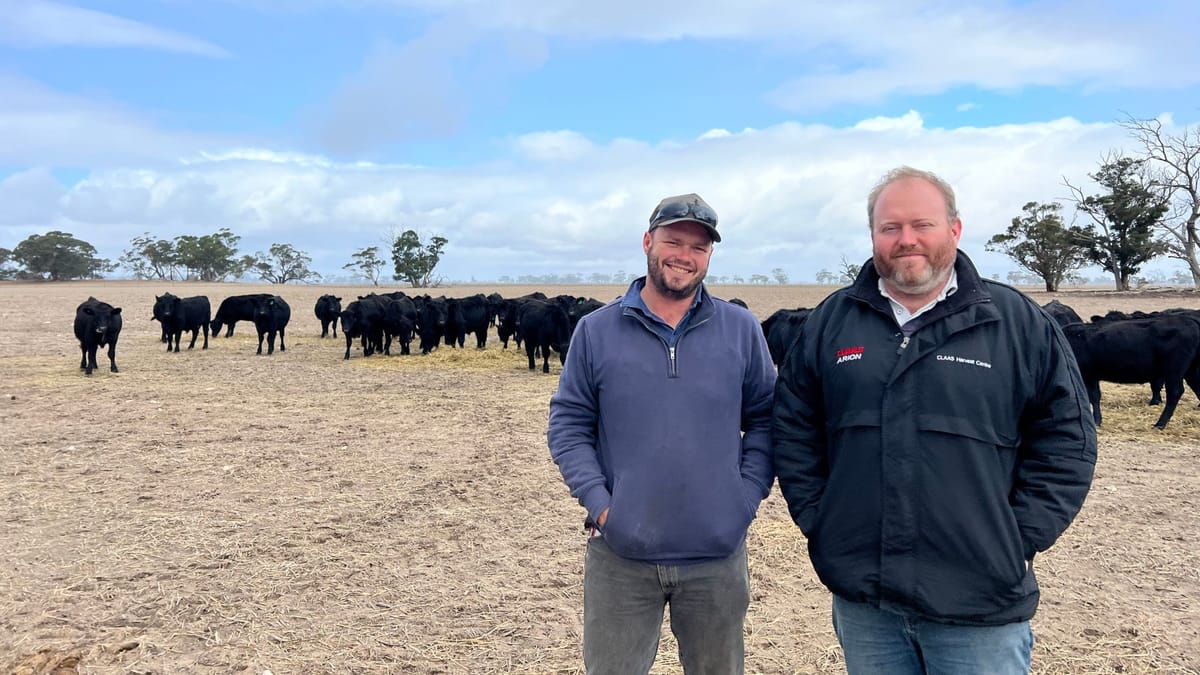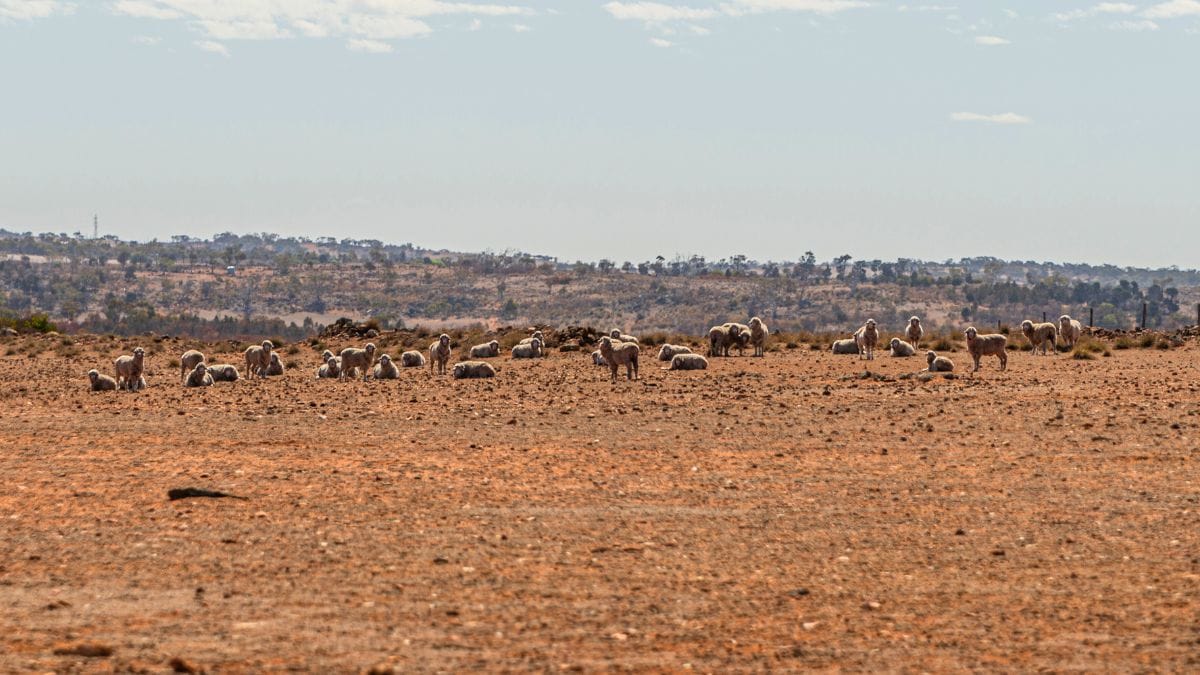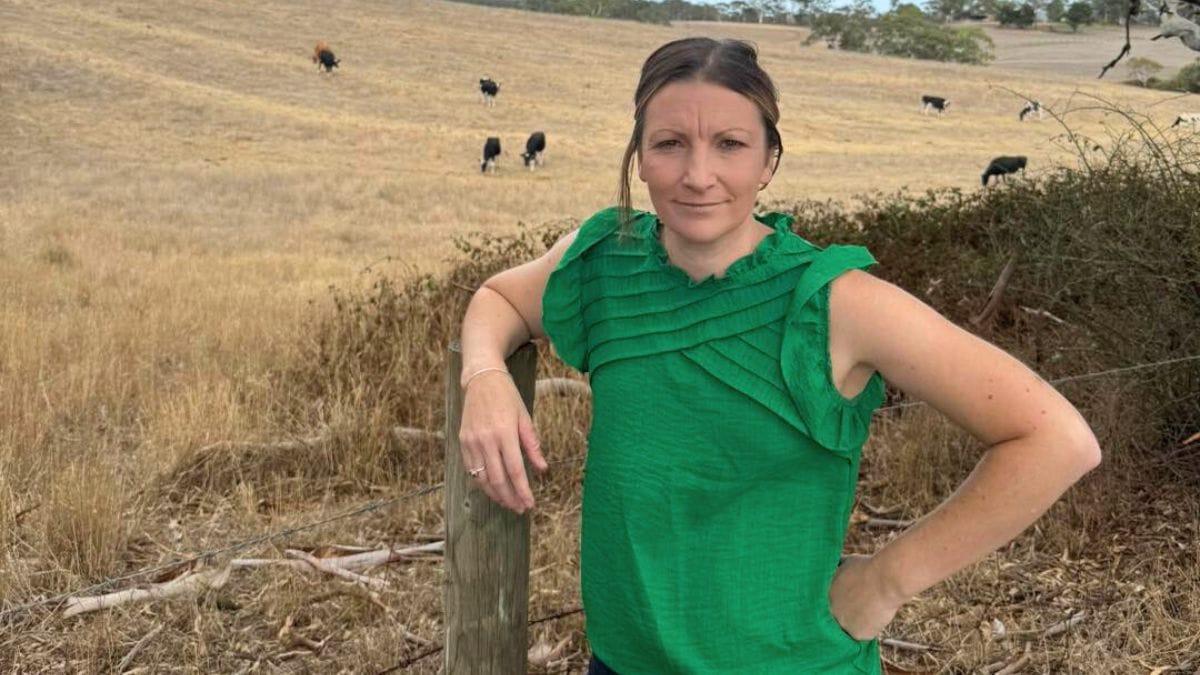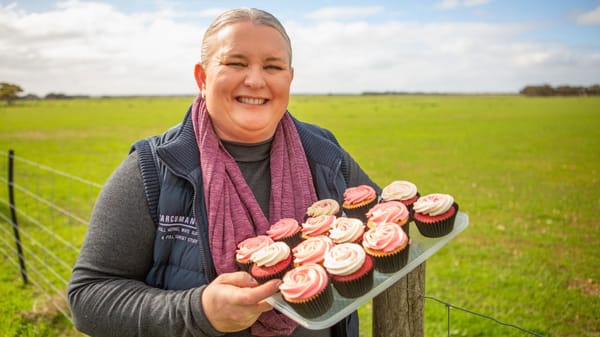Council issues drought declaration as SA and federal governments lag behind
In a first for local government, the Coorong council will offer relief to all its farms and agricultural businesses after formally declaring the district to be in drought.

This story is free to read. Help Murray Bridge News tell more stories like this by subscribing today.
The drought hasn’t broken yet, but recent rainfall has at least given Tintinara farmer Jonathan Pietzsch something that has been in short supply lately: a tiny bit of hope.
A greenish tinge has appeared in some paddocks around the Murraylands during the past week and a half, following falls of 20-30 millimetres on the King’s Birthday long weekend and the occasional shower since then.
It might take another six weeks for enough fodder to grow for stock to graze, Mr Pietzsch said.
But it was a start.
“We’re certainly a lot more optimistic than we were six weeks ago,” he said.
“At least you know there’s going to be a crop, there’s going to be some sort of feed in spring, and hopefully a bit of hay.”
His family will start seeding barley in the coming days, in the hope that the land will give back some of what it has taken over the past 18 months.
But they, like other farmers around the Murraylands and the state, have got a long way to go on the road to recovery.
And Mr Pietzsch believed there was more that the authorities could do to help.
Coorong council makes drought declaration
The drought currently gripping South Australia’s regions has been one of the worst in living memory, with rainfall at the lowest level on record in some areas.
But neither the federal nor state government has officially declared the state to be in drought.
That’s because, under the current National Drought Agreement, governments agreed to deliver relief based on “need, not drought declarations”.
The state opposition and at least two other councils have been lobbying the government to issue a declaration anyway.
Legislation to that effect was passed by the upper house of SA’s Parliament on Wednesday.
But the Coorong District Council – where Cr Pietzsch is the Deputy Mayor – went one step further on Tuesday, issuing a declaration of their own that the entire district was in drought.
In response to the declaration, councillors voted to:
- Defer property rates bills for all farms and agricultural businesses in the district, on application
- Allow livestock to graze on roadsides, with appropriate warning signs and insurance
- Ensure free access to water from standpipes until September 30
“It’s symbolic, but it’s also practical,” Cr Pietzsch said of the declaration.
“There’s a hardship policy (for ratepayers unable to pay their rates bills) but it’s quite a process, it involves getting a financial counsellor.
“With this … it’s simple: council has made a determination that the area is in drought, which means somebody can walk into the council, ask for (relief) and it’ll be given.”
That relief was much needed, Mayor Paul Simmons said.
“In all my life, I’ve never seen as severe a rainfall deficit across this entire district as we’ve seen in the last 18 months,” he said.
Cr Pietzsch said he knew of farmers who had been importing hay from the Northern Territory and Queensland at up to $750 a tonne just to try and keep their livestock alive.
Some locals had spent more than $1 million on hay, Cr Jeff Arthur said.

Deferred rates shouldn’t affect council’s cash flow, mayor suggests
The decision to defer primary producers’ property rates represents a $7.4 million bet for the council, in a sense – that’s how much income it had expected to collect from its rural ratepayers in 2025-26.
But Mr Simmons argued that the actual risk to the council was much lower.
For one thing, he anticipated that only about 20 per cent of those ratepayers would actually apply for relief, based on the council’s experience at the height of the COVID-19 pandemic.
He also anticipated that the council would be able to borrow money to make up for any disruption to its cash flow, and that the state government would – in the coming months – agree to reimburse it for the interest it would have earned on the foregone rate revenue.
“You can argue we’re ahead of the game, or you can argue we’re encouraging the state government to consider it,” he said at Tuesday’s meeting.
A proposal had already been endorsed by the South Australian Regional Organisation of Councils and put to Primary Industries and Regions SA, he said.
Without any deferral, an average rural ratepayer in the Coorong district would be due to pay about $5100 worth of rates per property in 2025-26.
No councillor declared a conflict of interest during Tuesday’s debate, though a majority – like a majority of Coorong ratepayers – have ties to the agricultural industry.
Mr Simmons, Cr Pietzsch and Cr Lisa Rowntree are all involved in primary production, Cr Mick O’Hara is a livestock agent, and Cr Brenton Qualmann has a declared interest in the Jabuk Pastoral Company.

Ball is in the government’s court, opposition says
Meanwhile, opposition primary industries spokeswoman Nicola Centofanti urged the state government to support the Liberals’ Drought Response and Recovery Bill in the lower house of Parliament.
The bill would enable the state government to issue a drought declaration.
It would also create a position for a state drought response coordinator and would, Dr Centofanti said, streamline access to support.
“Our farmers don’t need more round tables or further announcements without substance – they need action,” Dr Centofanti said.
“This bill gives the government the tools, now we’ll see if they have the courage to use them.”
Cr Pietzsch hoped that would be the case.
“While the National Drought Agreement says we don’t declare a drought any more, psychologically that’s a problem for people, because they don’t feel acknowledged,” he said.
“It’s fundamentally important to acknowledge regional communities and say it’s an issue.”
- More information about the National Drought Agreement: www.agriculture.gov.au.





